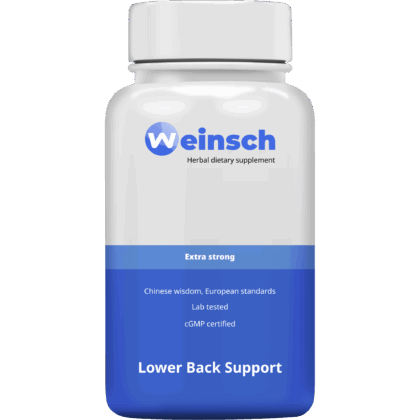Wu Jia Pi (Acanthopanax Rinde) ist ein warmes, scharfes Kraut in der Traditionellen Chinesischen Medizin (TCM), das zur Stärkung der Sehnen und Knochen, zur Vertreibung von Wind und Feuchtigkeit und zur Unterstützung der allgemeinen Vitalität bekannt ist. Es wird aus der Wurzelrinde von Acanthopanax gracilistylus und wird seit langem zur Behandlung von Schwäche, Schmerzen und Steifheit im unteren Rücken, in den Knien und Gelenken eingesetzt. Wu Jia Pi eignet sich besonders für ältere Menschen oder solche, die sich von einer chronischen Krankheit erholen, da es sowohl die Leber und die Nieren tonisiert als auch die Mobilität verbessert. Wu Jia Pi wird auch für die Verringerung von Ödemen und die Förderung der Harnausscheidung geschätzt, was es in Fällen nützlich macht, in denen Gelenkschmerzen von Schwellungen begleitet werden.
Funktionen & Vorteile
Strengthens Sinews and BonesImproves mobility and stability in cases of chronic weakness, degeneration, or post-injury recovery affecting the lower back and knees.
Expels Wind-DampnessRelieves pain, stiffness, and heaviness in joints caused by wind-damp obstruction, particularly in cold, damp climates.
Promotes Urination and Reduces EdemaHelps alleviate swelling in the lower limbs, especially when accompanied by joint pain or weakness.
Supports Vitality and RecoveryTonifies the Liver and Kidneys, restoring energy and resilience in chronic musculoskeletal conditions.
Indications (Who Can Benefit from It?)✔ Elderly individuals with weakness and stiffness in the back, knees, or joints.✔ People with arthritis or rheumatic pain worsened by cold and damp weather.✔ Those recovering from chronic illness or injury affecting mobility.✔ Patients with joint pain accompanied by swelling and heaviness.
Tongue & Pulse Diagnosis in TCMTongue: Pale or slightly purple with a thin white coating, indicating deficiency with dampness.Pulse: Deep and weak or moderate, reflecting deficiency with damp obstruction.
Related TCM PatternsLiver and Kidney Deficiency – Leads to chronic weakness of the sinews and bones.Wind-Damp Bi Syndrome – Causes joint pain, stiffness, and heaviness.Edema from Dampness – Produces swelling in the lower limbs and reduced mobility.
Clinical Applications (For Reference Only)Arthritis and Joint Pain – Strengthens the body while relieving stiffness.Lower Back and Knee Weakness – Improves support and stability.Edema with Joint Pain – Reduces swelling and heaviness.Post-Illness Rehabilitation – Restores strength and mobility.
Common Herbal Formulas with Wu Jia PiOften combined with Du Zhong and Xu Duan for musculoskeletal weakness, or with Sang Ji Sheng and Niu Xi for chronic joint pain and stiffness.
Precautions & ContraindicationsAvoid in cases of Yin deficiency with heat signs.Not suitable for dry, hot joint pain without dampness.Use with caution during pregnancy.
Lifestyle & Dietary Recommendations✔ Eat warming, nourishing foods such as lamb, black beans, and walnuts.✔ Avoid excessive cold, raw, or greasy foods that contribute to dampness.✔ Engage in gentle exercise like walking or Tai Chi to keep joints flexible.✔ Protect the lower back and knees from exposure to cold and damp weather.
ConclusionWu Jia Pi (Acanthopanax Bark) is a warm, strengthening herb in TCM that supports the sinews and bones, dispels wind-dampness, reduces swelling, and promotes mobility. It is especially beneficial for elderly individuals, those with chronic musculoskeletal weakness, and joint pain with edema.
Zertifizierte Zutaten
Kostenloser Versand ab €49.95
Antwort innerhalb von 24 Stunden
Zertifizierte Zutaten
Kostenloser Versand ab €49.95
Antwort innerhalb von 24 Stunden

